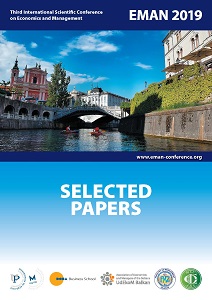THE RELATIONSHIP BETWEEN INTEGRATION OF TECHNOLOGY – INCREASE CUSTOMER SPENDING – CUSTOMER SATISFACTION: MONKEY MODEL
THE RELATIONSHIP BETWEEN INTEGRATION OF TECHNOLOGY – INCREASE CUSTOMER SPENDING – CUSTOMER SATISFACTION: MONKEY MODEL
Author(s): Mislav Šimunić, Marina Perišić Prodan, Ljubica Pilepić Stifanich
Subject(s): Business Economy / Management, Tourism, ICT Information and Communications Technologies
Published by: Udruženje ekonomista i menadžera Balkana
Keywords: hotel;information technology;customer consumption;customer satisfaction;semantics;MONKEY model;
Summary/Abstract: The purpose of this paper is to determine a link between the integration of technology/technological solutions/applications in the hotel business and guest satisfaction on the one hand, and the integration of technology/technological solutions/applications in the hotel business and stimulation of guest consumption during their stay in the hotel on the other hand. The aim is to examine and identify key elements of the MONKEY model, which will accomplish the purpose of this paper. In this study the survey method was used. The research instrument was a structured questionnaire consisting of three parts: (1) integration of technology, (2) guest consumption and (3) quest satisfaction. The questionnaires were distributed to hotel managers and domestic and international hotel guests on the Opatija Riviera (Croatia). The results of empirical research and analysis form the basis for further modification of the MONKEY model which can directly be used for creating a policy of integrating technology in the hotel business and increasing guest consumption during their stay at the hotel as well as increasing their satisfaction during and after their stay at the hotel. The scientific contribution of the paper is reflected in the authors’ presentation of their own MONKEY behavioral model for the analysis of technology integration/technological solutions/applications in the hotel business viewed through the prism of the semantic approach. In this paper the authors present their views and the results of their own empirical research. The results of this research can be useful for hotel managers in order to contribute to improving the quality of the hotel offer and thus respond to the modern demands of the tourism market.
Book: EMAN 2019 / 3 – Economics & Management: How to Cope with Disrupted Times – Selected Papers
- Page Range: 1-11
- Page Count: 11
- Publication Year: 2019
- Language: English
- Content File-PDF

